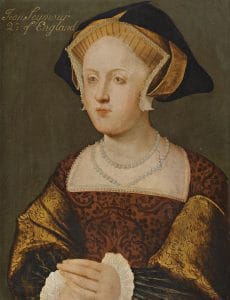 On this day in history, 7th June 1536, less than three weeks after the execution of previous queen, Anne Boleyn, there were celebrations for the new queen, Jane Seymour, Henry VIII’s third wife and the daughter of Sir John Seymour of Wulfhall.
On this day in history, 7th June 1536, less than three weeks after the execution of previous queen, Anne Boleyn, there were celebrations for the new queen, Jane Seymour, Henry VIII’s third wife and the daughter of Sir John Seymour of Wulfhall.
These celebrations took the form of a water pageant, or procession, along the Thames, from Greenwich to Whitehall (York Place).
Click here to read chronicler Charles Wriothesley’s account of celebrations that day.